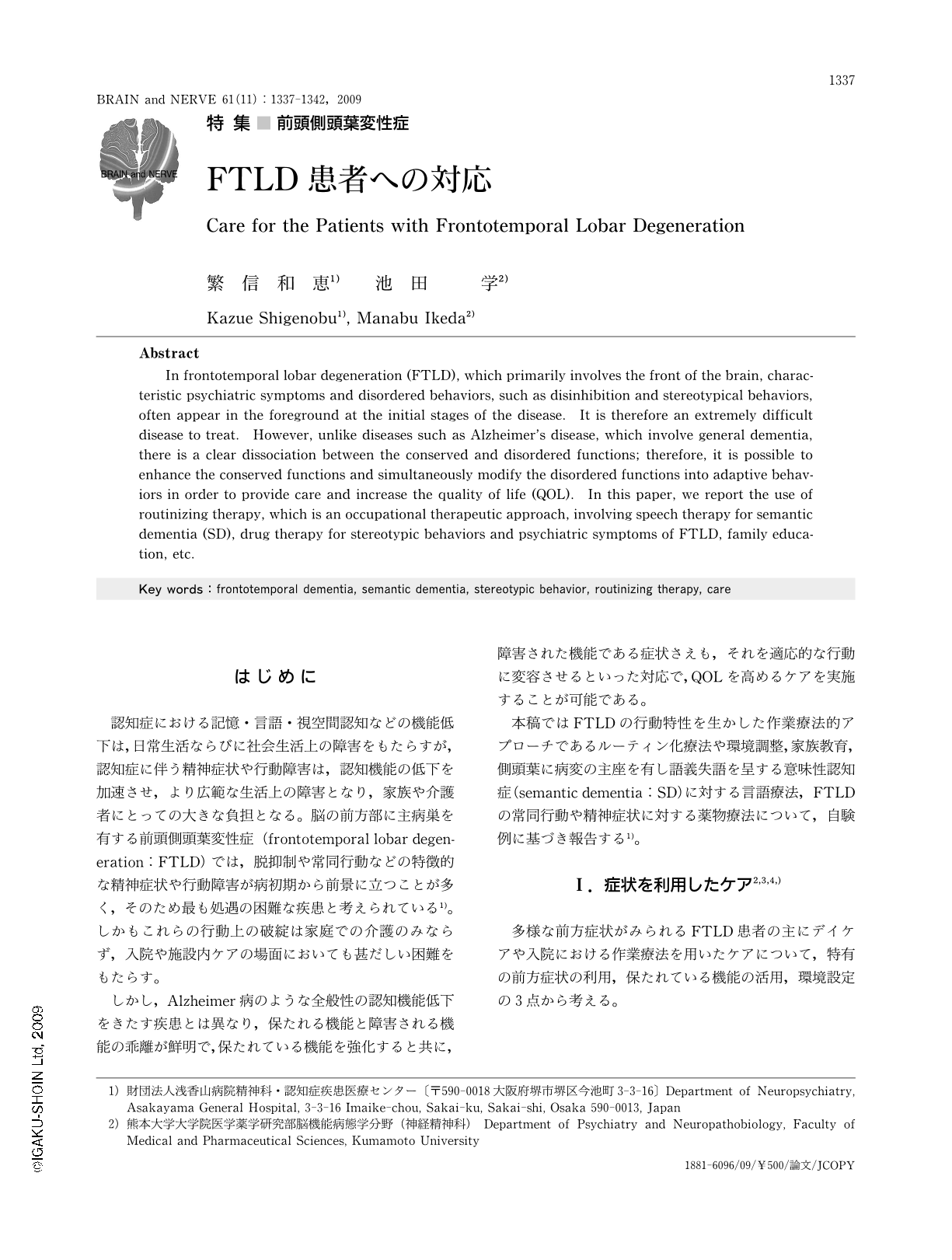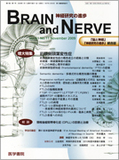Japanese
English
- 有料閲覧
- Abstract 文献概要
- 1ページ目 Look Inside
- 参考文献 Reference
はじめに
認知症における記憶・言語・視空間認知などの機能低下は,日常生活ならびに社会生活上の障害をもたらすが,認知症に伴う精神症状や行動障害は,認知機能の低下を加速させ,より広範な生活上の障害となり,家族や介護者にとっての大きな負担となる。脳の前方部に主病巣を有する前頭側頭葉変性症(frontotemporal lobar degeneration:FTLD)では,脱抑制や常同行動などの特徴的な精神症状や行動障害が病初期から前景に立つことが多く,そのため最も処遇の困難な疾患と考えられている1)。しかもこれらの行動上の破綻は家庭での介護のみならず,入院や施設内ケアの場面においても甚だしい困難をもたらす。
しかし,Alzheimer病のような全般性の認知機能低下をきたす疾患とは異なり,保たれる機能と障害される機能の乖離が鮮明で,保たれている機能を強化すると共に,障害された機能である症状さえも,それを適応的な行動に変容させるといった対応で,QOLを高めるケアを実施することが可能である。
本稿ではFTLDの行動特性を生かした作業療法的アプローチであるルーティン化療法や環境調整,家族教育,側頭葉に病変の主座を有し語義失語を呈する意味性認知症(semantic dementia:SD)に対する言語療法,FTLDの常同行動や精神症状に対する薬物療法について,自験例に基づき報告する1)。
Abstract
In frontotemporal lobar degeneration (FTLD),which primarily involves the front of the brain,characteristic psychiatric symptoms and disordered behaviors,such as disinhibition and stereotypical behaviors,often appear in the foreground at the initial stages of the disease. It is therefore an extremely difficult disease to treat. However,unlike diseases such as Alzheimer's disease,which involve general dementia,there is a clear dissociation between the conserved and disordered functions; therefore,it is possible to enhance the conserved functions and simultaneously modify the disordered functions into adaptive behaviors in order to provide care and increase the quality of life (QOL). In this paper,we report the use of routinizing therapy,which is an occupational therapeutic approach,involving speech therapy for semantic dementia (SD),drug therapy for stereotypic behaviors and psychiatric symptoms of FTLD,family education,etc.

Copyright © 2009, Igaku-Shoin Ltd. All rights reserved.


